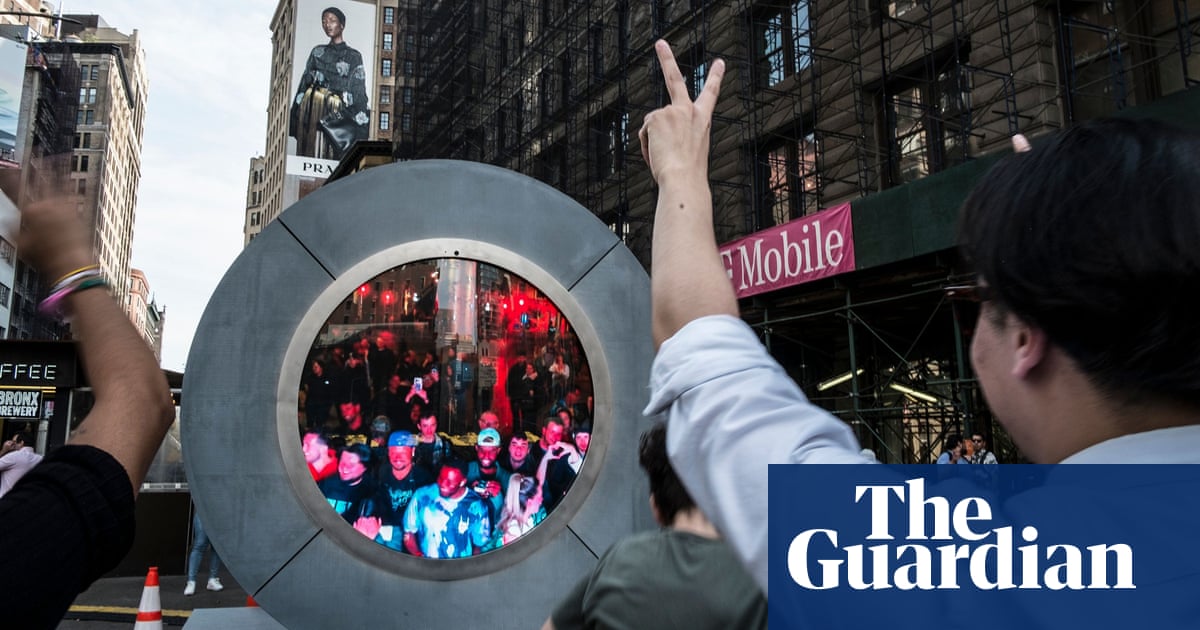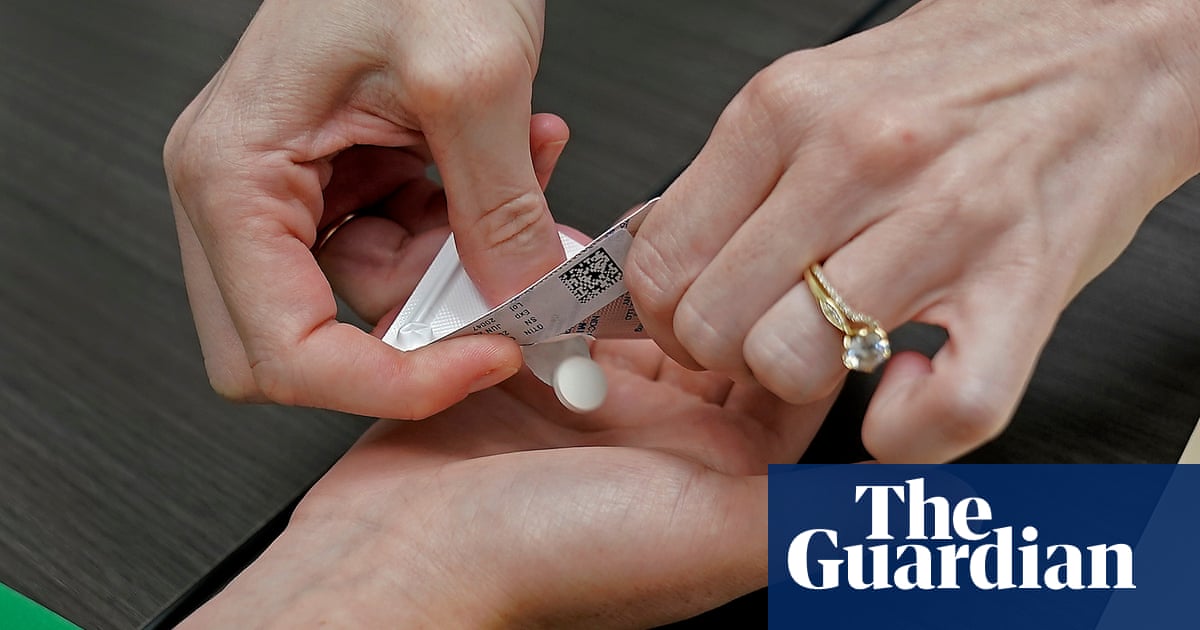Rain sluiced down on a grey Dublin afternoon but the crowd clustering around the portal ignored the downpour and waved at a man cycling towards the screen on a sunny morning in Manhattan.
He gazed back, waved and wobbled before recovering his balance and vanishing down Fifth Avenue, eliciting a cheer from the sodden observers on North Earl Street.
Monday was day five of a live stream that has connected Irelandâs capital with New York via an interactive sculpture and webcam that allows people to see, but not hear, each other.
Seconds after the cyclist, a woman appeared walking her dog. She stopped, stared at the screen and grinned. She picked up her dog and waved his paw. The crowd in Dublin, huddled under umbrellas, gave another cheer. âI wish Iâd brought my dog,â said Amy Ferguson, 24.
The fleeting, playful interactions between people separated by 3,000 miles and five time zones exemplified the hope of authorities when the art installation launched on 8 May. âTwo amazing global cities connected in real time and space,â said New Yorkâs chief public realm officer, Ya-Ting Liu.
âI would encourage Dubliners and visitors to the city to come and interact with the sculpture and extend an Irish welcome and kindness to cities all over the world,â said Dublinâs lord mayor, Daithà de Róiste.
Not all, however, have followed that utopian exhortation. Some on the Irish side have flashed body parts, while others displayed images of swastikas and the twin towers aflame on 9/11. One man made a theatrical show of snorting what appeared to be cocaine. Police escorted away a woman who was grinding against the portal.
âPortal to hell: NYC-Dublin live video art installation already bringing out the worst in people,â lamented the New York Post, which blamed Dublinâs âGuinness-glugging patronsâ.
Suzanne Byrne, 33, who lives near the portal in Dublin, said she was not surprised. âWhy did they put it here? Theyâre all mad on this street. At night-time itâs like The Purge,â she said, citing the dystopian film franchise.
Designed by a Lithuanian artist, Benediktas Gylys, each structure has an 8ft-wide screen and weighs 3.5 tonnes. The New York portal is at the junction of Broadway, Fifth Avenue and 23rd Street. Its Dublin counterpart is at the corner of North Earl Street and OâConnell Street, the heart of the inner city. The project is to continue until autumn, though some commentators have wondered if provocative behaviour will curb the experiment.
A pair of matching portals in 2021 connected Vilnius, Lithuaniaâs capital, with Lublin in Poland. The artist Paul St George connected London and New York in 2008 via a device called the Telectroscope, which had Jules Verne-style dials and flourishes.
The cold and wet did not deter tourists and natives from lingering and taking selfies at Dublinâs portal. Most were delighted, all curious. They watched a young New Yorker speed-walk past the screen, only to return and gaze in puzzlement as people waved at her. She laughed, indicated her watch, mimed typing and mouthed âgotta go to workâ before vanishing.
âI saw it on Instagram and had to come. Itâs cool,â said Sarah Jackson, 23, a student. She was phlegmatic about the reports of rowdiness. âItâs a bit wild. It shows the good and bad of Dublin.â
Sandy Garrido, 32, a tourist from Chile, said she first saw it on TikTok. âItâs so fun to connect with people this way.â
Justin Miller, 28, an American who is studying history at Trinity College Dublin, said he had half-jokingly asked friends in the US to visit the New York portal. He shrugged off the Irish sideâs notoriety. âHopefully itâs mainly a positive thing rather than people being weird. It shouldnât take away from the fun.â



